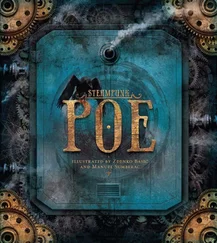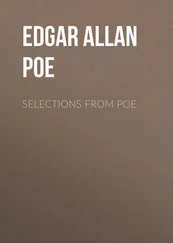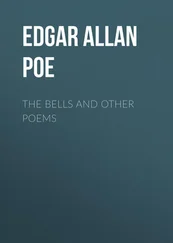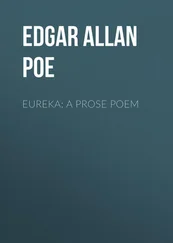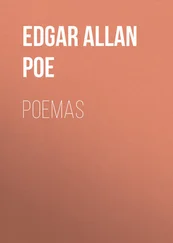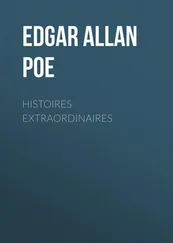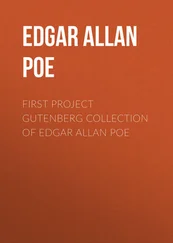Edgar Poe - CRITICISM
Здесь есть возможность читать онлайн «Edgar Poe - CRITICISM» весь текст электронной книги совершенно бесплатно (целиком полную версию без сокращений). В некоторых случаях можно слушать аудио, скачать через торрент в формате fb2 и присутствует краткое содержание. Жанр: на английском языке. Описание произведения, (предисловие) а так же отзывы посетителей доступны на портале библиотеки ЛибКат.
- Название:CRITICISM
- Автор:
- Жанр:
- Год:неизвестен
- ISBN:нет данных
- Рейтинг книги:3 / 5. Голосов: 1
-
Избранное:Добавить в избранное
- Отзывы:
-
Ваша оценка:
- 60
- 1
- 2
- 3
- 4
- 5
CRITICISM: краткое содержание, описание и аннотация
Предлагаем к чтению аннотацию, описание, краткое содержание или предисловие (зависит от того, что написал сам автор книги «CRITICISM»). Если вы не нашли необходимую информацию о книге — напишите в комментариях, мы постараемся отыскать её.
CRITICISM — читать онлайн бесплатно полную книгу (весь текст) целиком
Ниже представлен текст книги, разбитый по страницам. Система сохранения места последней прочитанной страницы, позволяет с удобством читать онлайн бесплатно книгу «CRITICISM», без необходимости каждый раз заново искать на чём Вы остановились. Поставьте закладку, и сможете в любой момент перейти на страницу, на которой закончили чтение.
Интервал:
Закладка:
That beetles high thy love! valley o'er;
And now, where winds thy river's greenest shore,
Within a bower of sycamores am laid;
And winds as soft and sweet as ever bore
The fragrance of wild flowers through sun and shade
Are singing in the trees, whose low boughs press my head.
The poem, however, is disfigured with the mere burlesque of some portions of Alnwick Castle- with such things as he would look particularly droll
In his Iberian boot and Spanish plume; and
A girl of sweet sixteen
Love-darting eyes and tresses like the morn
Without a shoe or stocking- hoeing corn, mingled up in a pitiable manner with images of real beauty.
The Field of the Grounded Arms contains twenty-four quatrains, without rhyme, and, we think, of a disagreeable versification. In this poem are to be observed some of the finest passages of Halleck. For example Strangers! your eyes are on that valley fixed
Intently, as we gaze on vacancy,
When the mind's wings o'erspread
The spirit world of dreams. and again O'er sleepless seas of grass whose waves are flowers.
Red-jacket has much power of expression with little evidence of poetical ability. Its humor is very fine, and does not interfere, in any great degree, with the general tone of the poem.
A Sketch should have been omitted from the edition as altogether unworthy of its author.
The remaining pieces in the volume are Twilight, Psalm cxxxvii; To...; Love; Domestic Happiness; Magdalen, From the Italian; Woman; Connecticut; Music; On the Death of Lieut. William Howard Allen; A Poet's Daughter; and On the Death of Joseph Rodman Drake. Of the majority of these we deem it unnecessary to say more than that they partake, in a more or less degree, of the general character observable in the poems of Halleck. The Poet's Daughter appears to us a particularly happy specimen of that general character, and we doubt whether it be not the favorite of its author. We are glad to see the vulgarity of
I'm busy in the cotton trade
And sugar line, omitted in the present edition. The eleventh stanza is certainly not English as it stands- and besides it is altogether unintelligible. What is the meaning of this?
But her who asks, though first among
The good, the beautiful, the young
The birthright of a spell more strong
Than these have brought her.
The Lines on the Death of Joseph Rodman Drake, we prefer to any of the writings of Halleck. It has that rare merit in composition of this kind- the union of tender sentiment and simplicity. This poem consists merely of six quatrains, and we quote them in full.
Green be the turf above thee,
Friend of my better days!
None knew thee but to love thee,
Nor named thee but to praise.
Tears fell when thou wert dying
From eyes unused to weep,
And long, where thou art lying,
Will tears the cold turf steep.
When hearts whose truth was proven,
Like thine are laid in earth,
There should a wreath be woven
To tell the world their worth.
And I, who woke each morrow
To clasp thy hand in mine,
Who shared thy joy and sorrow,
Whose weal and woe were thine It should be mine to braid it
Around thy faded brow,
But I've in vain essayed it,
And feel I cannot now.
While memory bids me weep thee,
Nor thoughts nor words are free,
The grief is fixed too deeply,
That mourns a man like thee.
If we are to judge from the subject of these verses, they are a work of some care and reflection. Yet they abound in faults. In the line,
Tears fell when thou wert dying; wert is not English.
Will tears the cold turf steep, is an exceedingly rough verse. The metonymy involved in
There should a wreath be woven
To tell the world their worth, is unjust. The quatrain beginning,
And I who woke each morrow, is ungrammatical in its construction when viewed in connection with the quatrain which immediately follows. "Weep thee" and "deeply" are inaccurate rhymes- and the whole of the first quatrain,
Green be the turf, amp;c. although beautiful, bears too close a resemblance to the still more beautiful lines of William Wordsworth,
She dwelt among the untrodden ways
Beside the springs of Dove,
A maid whom there were none to praise
And very few to love.
As a versifier Halleck is by no means equal to his friend, all of whose poems evince an ear finely attuned to the delicacies of melody. We seldom meet with more inharmonious lines than those, generally, of the author of Alnwick Castle. At every step such verses occur as,
And the monk's hymn and minstrel's song True as the steel of their tried blades For him the joy of her young years Where the Bard-peasant first drew breath And withered my life's leaf like thinein which the proper course of the rhythm would demand an accent upon syllables too unimportant to sustain it. Not infrequently, too, we meet with lines such as this,
Like torn branch from death's leafless tree, in which the multiplicity of consonants renders the pronunciation of the words at all, a matter of no inconsiderable difficulty.
But we must bring our notice to a close. It will be seen that while we are willing to admire in many respects the poems before us, we feel obliged to dissent materially from that public opinion (perhaps not fairly ascertained) which would assign them a very brilliant rank in the empire of Poesy. That we have among us poets of the loftiest order we believe- but we do not believe that these poets are Drake and Halleck.
BRYANT'S POEMS
MR. BRYANT'S poetical reputation, both at home and abroad, is greater, we presume, than that of any other American. British critics have frequently awarded him high praise, and here, the public press have been unanimous in approbation. We can call to mind no dissenting voice. Yet the nature, and, most especially the manner, of the expressed opinions in this case, should be considered as somewhat equivocal, and but too frequently must have borne to the mind of the poet doubts and dissatisfaction. The edition now before us may be supposed to embrace all such of his poems as he deems not unworthy his name. These (amounting to about one hundred) have been "carefully revised." With the exception of some few, about which nothing could well be said, we will speak briefly of them one by one, but in such order as we may find convenient.
The Ages, a didactic piece of thirty-five Spenserian stanzas, is the first and longest in the volume. It was originally printed in 1821, With about half a dozen others now included in this collection. The design of the author in this poem is "from a survey of the past ages of the world, and of the successive advances of mankind in knowledge and virtue, to justify and confirm the hopes of the philanthropist for the future destinies of the human race." It is, indeed, an essay on the perfectability of man, wherein, among other better arguments some in the very teeth of analogy, are deduced from the eternal cycle of physical nature, to sustain a hope of progression in happiness. But it is only as a poem that we wish to examine The Ages. Its commencement is impressive. The four initial lines arrest the attention at once by a quiet dignity of manner, an air of placid contemplation, and a versification combining the extremes of melody and force When to the common rest that crowns our days,
Called in the noon of life, the good man goes,
Or full of years, and ripe in wisdom, lays
His silver temples in their last reposeThe five concluding lines of the stanza, however, are not equally effective When, o'er the buds of youth, the death-wind blows,
And brights the fairest; when our bitterest tears
Stream, as the eyes of those that love us close,
Читать дальшеИнтервал:
Закладка:
Похожие книги на «CRITICISM»
Представляем Вашему вниманию похожие книги на «CRITICISM» списком для выбора. Мы отобрали схожую по названию и смыслу литературу в надежде предоставить читателям больше вариантов отыскать новые, интересные, ещё непрочитанные произведения.
Обсуждение, отзывы о книге «CRITICISM» и просто собственные мнения читателей. Оставьте ваши комментарии, напишите, что Вы думаете о произведении, его смысле или главных героях. Укажите что конкретно понравилось, а что нет, и почему Вы так считаете.

